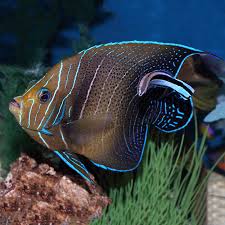Dragons in the Battles Between Deities and Monsters in Chinese Mythology

Dragons are among the most iconic and revered creatures in Chinese mythology, often occupying a central role in stories that revolve around gods, heroes, and mythical beings. The dragon’s presence in these ancient legends symbolizes a powerful force of nature, representing both divine protection and chaos. In many myths, dragons engage in epic battles against deities and monsters, often playing the role of formidable adversaries or guardians. These battles are not only physical confrontations but also allegories for cosmic struggles between order and chaos, good and evil.
In this article, we will explore the role of dragons in the battles between gods and monsters in Chinese mythology. We will look at famous mythological tales where dragons act as antagonists or protectors in these celestial and earthly conflicts, highlighting their symbolic significance in Chinese culture.
1. The Yellow Emperor and the Battle Against the Black Dragon
One of the most famous legends featuring a dragon in Chinese mythology is the story of the Yellow Emperor (Huangdi) and his battle against a malevolent black dragon. The Yellow Emperor is considered one of the greatest figures in Chinese history, credited with founding the first Chinese dynasty and establishing the foundations of Chinese civilization. In this myth, the Yellow Emperor is forced to confront a powerful black dragon that has caused widespread chaos by flooding the world and threatening the balance of nature.
The dragon is depicted as a monstrous creature, capable of summoning storms, floods, and natural disasters. It symbolizes chaos and disorder, bringing destruction to the earth. In the battle between the Yellow Emperor and the dragon, the emperor’s victory represents the triumph of cosmic order over the destructive forces of nature. Armed with wisdom, divine powers, and the help of various gods, the Yellow Emperor defeats the dragon, restoring peace and stability to the world. This story underscores the belief that dragons, though mighty and dangerous, can be subdued by divine intervention and heroic virtue.
2. Nezha and the Dragon King of the East Sea
The legend of Nezha, one of the most beloved heroes in Chinese mythology, features a dramatic battle between the young warrior and the powerful Dragon King of the East Sea. The Dragon King is a god-like figure who controls the oceans, rivers, and all aquatic creatures. He is known for his vast powers, including the ability to summon storms, floods, and other natural disasters. In this particular tale, the Dragon King becomes a formidable adversary to Nezha and his family.
The story begins when the Dragon King’s son abducts a group of children and holds them captive in his underwater palace. Nezha, a heroic figure known for his martial prowess and supernatural abilities, decides to confront the Dragon King and free the children. Armed with divine weapons such as the Fire-tipped Spear and the Heavenly Rings, Nezha takes on the dragon in a fierce battle.
The battle between Nezha and the Dragon King is filled with symbolism. The dragon, as a creature of great power, represents the destructive forces of nature and the potential for chaos. Nezha, on the other hand, embodies justice, righteousness, and the fight to protect the weak and innocent. Through sheer strength, determination, and the help of the gods, Nezha ultimately defeats the Dragon King, restoring balance to the world and freeing the children. This victory further cements Nezha’s status as a hero and a defender of order in the cosmos.
3. The Battle Between the Jade Emperor and the Chaos Dragon
The Jade Emperor, the supreme deity in Chinese mythology, is the ruler of Heaven and the ultimate authority over all celestial beings. In some versions of Chinese mythology, the Jade Emperor faces off against a powerful dragon who represents chaos and disorder. This dragon is a symbol of the untamed forces of nature that threaten the harmony of the universe.
The battle between the Jade Emperor and the chaos dragon is not merely a fight between two beings; it represents the cosmic struggle between order and chaos, between the forces that maintain harmony and those that seek to disrupt it. The dragon’s insurrection against the Jade Emperor’s rule is seen as a challenge to the divine order. However, the Jade Emperor, with his wisdom and divine power, defeats the dragon and restores balance to the heavens and the earth. This myth highlights the idea that divine rulers have the power to control even the most destructive forces of nature, ensuring the stability of the cosmos.
4. The Dragon and the Heroic Battle of Guan Yu
Guan Yu, a legendary hero from the Three Kingdoms period, is one of the most revered figures in Chinese history and mythology. Known for his unwavering loyalty, bravery, and honor, Guan Yu is often depicted as a god of war and protector of the righteous. In some versions of his legend, Guan Yu encounters a dragon in a battle that further solidifies his status as a hero.
The dragon in this tale is not just a mythical creature, but a symbol of the chaos and evil that threatens the peace and order of the world. Guan Yu, with his legendary sword, the Green Dragon Crescent Blade, faces off against the dragon in a battle that represents the fight between good and evil. Guan Yu’s strength, loyalty, and sense of justice are key to his victory over the dragon. This battle is more than just a physical confrontation; it is a symbolic representation of the struggle between virtue and corruption, with the dragon representing the forces of disorder and Guan Yu embodying righteousness and moral integrity.
Guan Yu’s triumph over the dragon is a key moment in his myth, reinforcing his status as a divine protector and hero. The dragon’s defeat symbolizes the triumph of justice and order over chaos, further solidifying Guan Yu’s role as a defender of harmony and righteousness.
5. The Immortal Hero Lü Dongbin and the Dragon
Lü Dongbin, one of the Eight Immortals of Taoist mythology, is another legendary figure who is said to have fought a dragon. Lü Dongbin is known for his wisdom, martial arts skills, and ability to overcome evil spirits and demonic forces. In one particular tale, Lü Dongbin confronts a powerful dragon that has been causing chaos and destruction in the human world.
The dragon in this myth represents an embodiment of evil and destructive power. It terrorizes villages, brings floods, and causes widespread suffering. Lü Dongbin, with his magical abilities and martial prowess, takes it upon himself to defeat the dragon and restore peace to the land. Using his sword and magical talismans, Lü Dongbin is able to subdue the dragon, bringing an end to its reign of terror. The victory of Lü Dongbin over the dragon is seen as a triumph of virtue, wisdom, and spiritual power over the forces of darkness.
6. The Legend of the Dragon and the Immortal Zhang Guolao
Zhang Guolao, another of the Eight Immortals, is famous for his magical abilities and his mischievous nature. In one version of his legend, Zhang Guolao faces off against a dragon that has been causing havoc in the celestial realm. The dragon is said to have caused great turmoil, disrupting the natural order of the universe. As a powerful immortal, Zhang Guolao is called upon to confront the dragon and restore balance.
The battle between Zhang Guolao and the dragon is characterized by a combination of magic, martial arts, and wit. Zhang Guolao uses his magical powers to subdue the dragon, restoring peace to the celestial realm. This myth, like others, highlights the importance of wisdom, virtue, and spiritual power in overcoming the chaotic forces represented by the dragon.
7. The Dragon and the Heroes of the Celestial Realm
Dragons are also featured in many other myths where they are enemies of the gods or legendary heroes. In some tales, dragons represent the forces of nature—storms, floods, and other natural disasters—that need to be subdued by the gods in order to maintain cosmic order. These dragons are often portrayed as guardians of treasure or powerful beings who must be defeated by the gods or heroes in order to restore balance.
In these stories, the dragon often symbolizes untamed power, and the battle with the dragon represents the struggle to control that power. The heroes who defeat the dragons are often depicted as paragons of virtue, wisdom, and strength, symbolizing the triumph of order and good over chaos and evil.
Conclusion: The Symbolism of Dragons in Battles with Gods and Monsters
In Chinese mythology, dragons are powerful creatures that play a central role in the cosmic struggle between order and chaos. These mythical battles between dragons, gods, and heroes are not just physical confrontations but are imbued with deep symbolism. Dragons, as embodiments of nature’s untamed forces, represent chaos and destruction. They challenge the gods and heroes who seek to maintain harmony and balance in the universe.
The stories of dragons battling gods and monsters reflect the ancient Chinese worldview that cosmic order must be upheld through strength, wisdom, and divine intervention. The dragons, though formidable and fearsome, are ultimately defeated by the forces of good—by gods and heroes who represent justice, virtue, and divine power. These mythological tales continue to resonate in Chinese culture, reminding people of the eternal struggle between order and chaos, and the importance of wisdom and courage in overcoming the forces of darkness.

